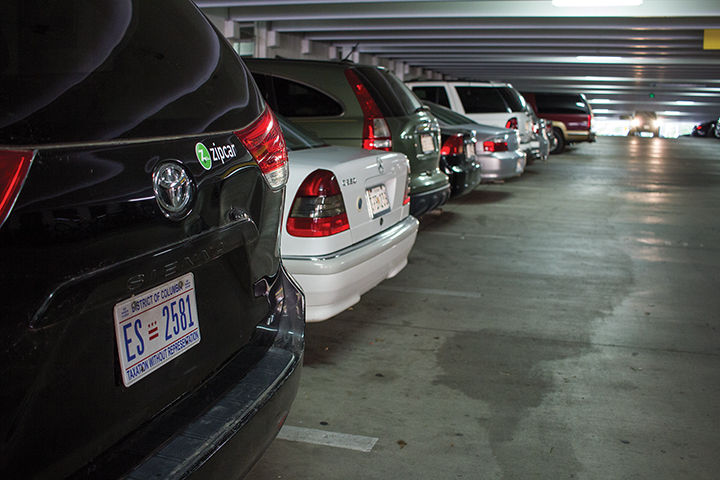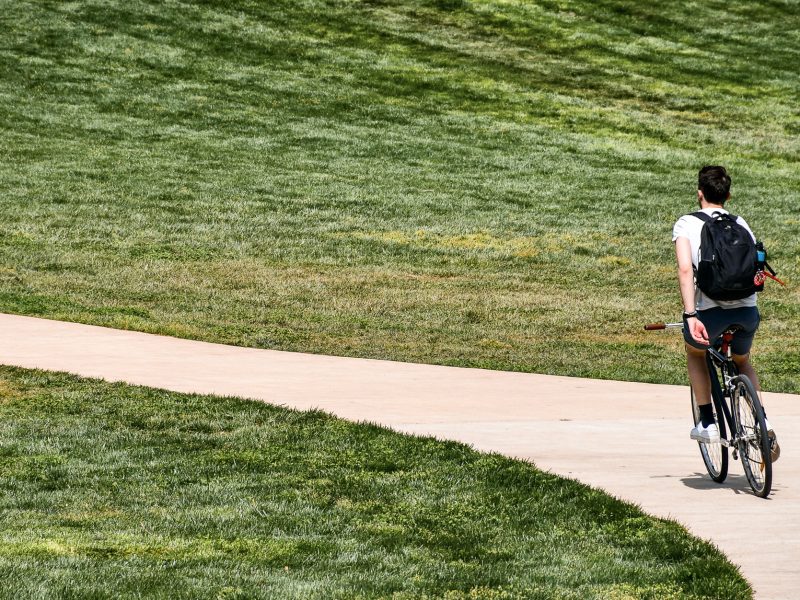The loss of more than 2,500 parking spaces by fall 2017 will result in increased parking fees and restrictions for noncommuting freshmen, sophomores and juniors, DOTS officials said.
The start of various construction projects at this university — notably the expansion of Cole Field House beginning this month and the Brendan Iribe Center for Computer Science and Innovation — will lead to a 2,655 parking space reduction in the next two years, Department of Transportation Services Director David Allen said.
To determine parking priority, DOTS is following a pecking order that places freshman on-campus resident students at the bottom, Allen said. As of now, freshman resident students will not be able to park on the campus beginning in fall 2016.
By fall 2017, sophomore and junior on-campus resident students will also be prohibited from parking on the campus, Allen said.
READ MORE: DOTS food drive allows people to donate, reduce fines
The Residence Hall Association said there should be an evaluative process to determine parking priority, he said. In some instances, a freshman might need a car on the campus more than a junior would.
The department is anticipating that roughly 50 exceptions will be made from the estimated 400 to 500 freshmen who will lose parking next year, he said.
“There will be exceptions, and we will work with RHA to create that exception process,” Allen said.
To combat the financial strain parking space reduction imposes on the department, he noted DOTS has initiated a three-year, three-phase plan to generate revenue.
The first phase took place this semester, Allen said, when late fee parking violations, meter fines and surface lot meter parking fees all ramped up.
The second and third phases could require double-digit registration fees in 2016 and 2017, with increases between 10 and 12 percent for both resident students and commuters with cars, he said.
READ MORE: SGA aims to improve commuters’ involvement on UMD campus
“I am not optimistic to think they will be successful in mitigating those fee increases again,” Allen said. “I think there will be significant fee increases this coming year and the next following year.”
DOTS plans to help ease resident students through this transition, he said. More Zipcars will be provided for students, and a bike-share program is launching next spring, DOTS spokeswoman Anna McLaughlin said.
The bike-share will a partnership between the university and College Park that will allow students to borrow bikes for both leisure and travel purposes.
“As a member, you can walk up to it, unlock it and take it where you need to go,” McLaughlin said. “It’ll be another option for people that need to get around.”
In addition to using Shuttle-UM buses to navigate across the campus and around College Park, DOTS will also encourage carpooling, McLaughlin said.
The department will consider making adjustments to its Shuttle-UM service if necessary, Allen said. DOTS will observe changes in where students are located so it can better accommodate them.
The introduction of the Purple Line on the campus could lead to as many as 800 additional parking losses, Allen said. If this happens, he said, an additional parking garage would likely be built.
A new parking garage costing about $100 million could come five years from now or later, Allen said, and would include 3,000 spaces. It would be located in Lot 11B, and parking fees would have to increase even more drastically to fund it, he said.
READ MORE: New Shuttle-UM route will take riders to Gaithersburg
“A garage is not so far off into our future, I suspect,” Allen said. “You can only tell a certain number of our population that they can’t park.”
In spite of future parking fee increases, parking will still be less expensive than at many other Big Ten universities, Allen said.
Yearlong parking permits for the 2015-16 academic year cost $249 for commuters, $481 for resident students and $581 for satellite residents. In comparison, parking registration at Ohio State University can cost as much as $813.
Aida Bagheri Hamaneh, a freshman enrolled in letters and sciences, currently pays more than $200 to use her car to commute but said she the potential fee increase is discouraging her from continuing to do so — even if she opts to live on the campus.
“If I lived on campus, I probably would not have my car here,” she said. “It’s a little unfair, whether a student needs to get to their job, internship or just go home to see their parents. Parking should be more affordable.”
While the reduction in parking will frustrate some students in the short term, Allen implores students to trust the process.
“These projects and every new facility being built on campus makes everyone’s education more valuable,” Allen said. “It’s worth enduring temporary pain for very long-term gain.”



